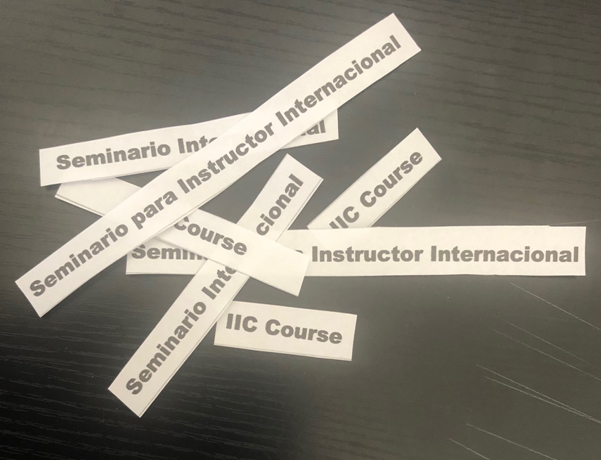 Most likely, the majority are unaware that, in the early days of the discipline in the West, everything revolved around attending the practice venue. The Instructor/student relationship was the gateway to guidance and knowledge of the sought-after skills.
Most likely, the majority are unaware that, in the early days of the discipline in the West, everything revolved around attending the practice venue. The Instructor/student relationship was the gateway to guidance and knowledge of the sought-after skills.
The emergence of literature related to the martial art being practiced (in our case Taekwon-Do, even before its divisions), made it possible to access information that was difficult to acquire due to language barriers and limited class time, which conspired against accessing such explanations.
The rise of supposed «gurus» with exotic appearances and half-hearted explanations sold non-existent Oriental mysteries.
Did you know that very few Orientals seriously delve into martial arts? Did you know that only a handful of them have theoretical/practical knowledge about these arts? Did you know that many of them take advantage of their Oriental background to sell non-existent mysteries from that part of the world to the West because they realize that Westerners are inclined to buy and idolize them?
Well, if you believe that learning the art from an Oriental guarantees something different, that’s your choice, but remember, despite that preference, there is an undeniable truth that KNOWLEDGE HAS NO RACE.
Today, this market is not only for Orientals but has also been invaded by others who exploit it, many of them audaciously since their pedagogical skills leave much to be desired. However, the real needs of practitioners are no different from the original ones.
Why would you want to become an International Instructor if what you teach needs to be endorsed by supposed Masters or Grandmasters who, to justify their position, will say things that are not what you claim? Isn’t this a veiled way to undermine you, the International Instructor, in front of the students you bring to these «international seminars or courses»? Perhaps this is one of the reasons that promote the frequent switching of schools.
If we put things in perspective, we must agree that an International Instructor seminar is for International Instructors (4th Dan and above with certification for that specialty) and not for lower ranks. Of course, gathering thirty or forty black belts of 4th Dan and above is not the same, economically speaking, as assembling two hundred or three hundred lower-grade black belts, who, despite attending these courses, will not change their level because they lack the time for it and the maturation on their grades .
Is an International Instructor seminar a place to generically dictate whimsical technical combinations of strict sports application? Is that the purpose for which the attendees were called? For many, it’s also a good opportunity to acquire another certificate to add to their personal collection.
I believe an International Instructor Seminar should be directed exclusively at this hierarchical level. Only International Instructors recognized by the institution offering the course and those who have accumulated the credits for promotion should attend, not lower grades. Lower grades (1st to 3rd Dan) should be taught by these International Instructors; otherwise, the order of ranks in the Black Belt ladder would be absurd and unjustifiable. It would be like giving authority only to take it away.
To hold an International Instructor seminar, a unique place must be occupied, granted by the institution that congregates, and be impartial in its linguistic and technical use. However, being promoted to the highest rank of the art does not authorize one to occupy such a place. We know many instructors holding the highest rank (9th Dan) have knowledge often not commensurate with that degree.
This place must be granted unanimously and not contain expressions and actions that create discrepancies or doubts.
To be called a seminar, the source of information must be of the highest level, which doesn’t only mean the highest rank. Both should coincide, yet we know that often they do not.
Longevity in the discipline is sometimes confused with knowledge and pedagogical ability. The field of pedagogy is a separate skill that requires scientific training to transfer knowledge unequivocally, in an impartial language, and with unique biomechanics.
The only person to hold such a position so far has been Gen. Choi Hong Hi. The rest only fed the nowadays divisions.
According to the dictionary, a seminar is: a specialized meeting with a technical and academic nature whose goal is to conduct an in-depth study of a certain subject and where theoretical/practical harmony is sought.
As can be seen, this has nothing to do with showing or trying to «teach» punches and kicks of strict sports application with fleeting uses for effective self-defense.
All calls that deal with sports aspects are merely special classes; seminars, when they are occasionally necessary, are something else and should be treated with the seriousness detailed in this note.
Senior Grand Master Ricardo Desimone
To be aware read again the previous notes